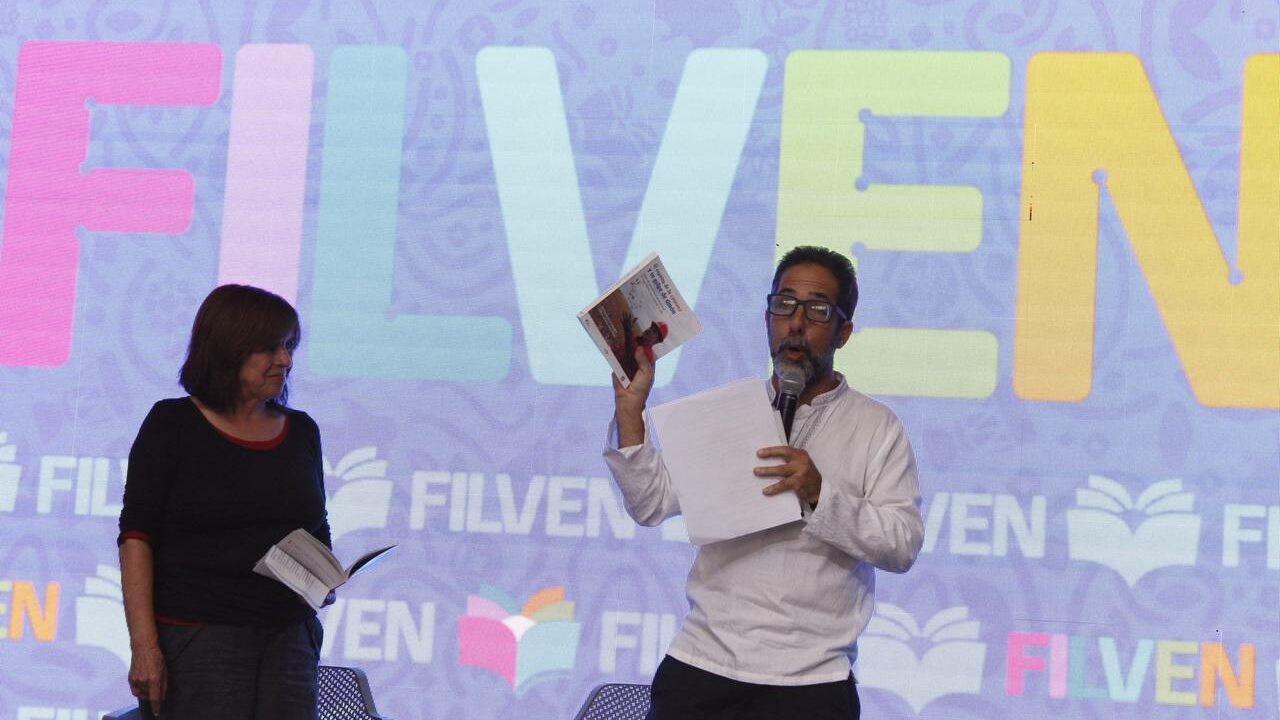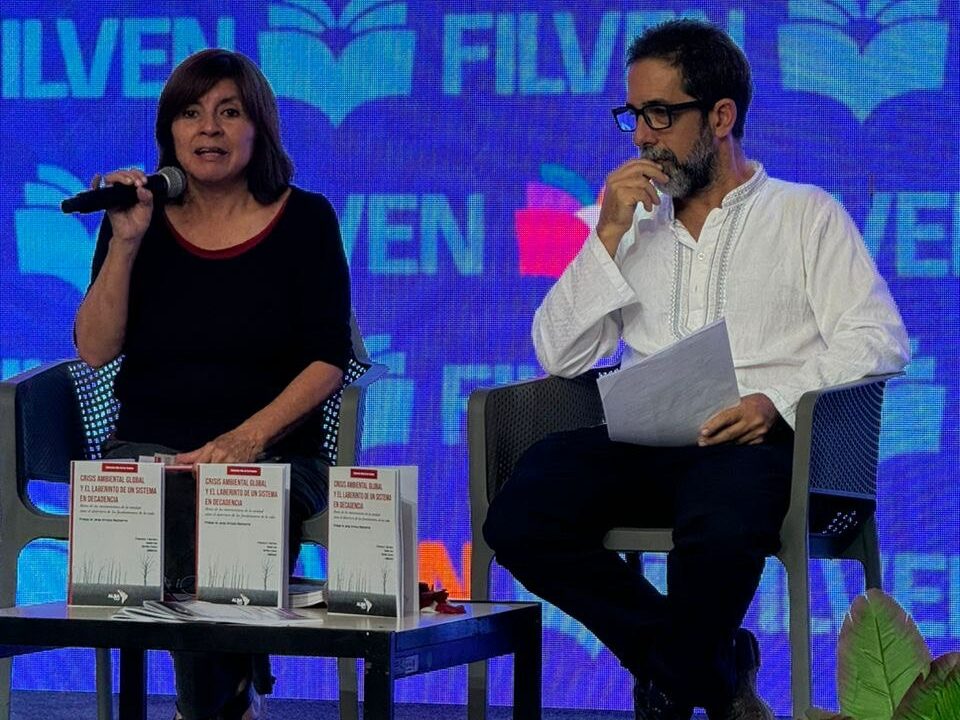Caracas, July 16, 2024.- In the context of the International Book Fair of Venezuela 2024 (Filven), the Bolivarian Alliance for the Peoples of Our America-People’s Trade Treaty (ALBA-TCP) presented the book “Global environmental crisis and the labyrinth of a system in decline. Challenges of unity movements in the face of the deterioration of life’s foundations”.
The text brings together the reflections of prominent thinkers and activists from Latin America and the Caribbean, who address the global environmental crisis from a critical and proactive perspective.
This work features contributions from Jorge Arreaza, Delcy Rodríguez, Sergio Rodríguez Gelfenstein, Francisco Herrera, and Daniel Lew from Venezuela; Ramón Grosfoguel from Puerto Rico; Juan Carlos Monedero from Spain; Nahuel Michalski and Atilio Borón from Argentina; Carlos Barrientos Aragón from Guatemala; João Pedro Stedile from Brazil; and Irene León from Ecuador.
The compilation arises from the participation of these authors in the Encounter for a Global Social Alternative, organized by the Bolivarian Alliance for the Peoples of Our America-People’s Trade Treaty (ALBA-TCP) in April 2024.

During the presentation of the mentioned book, Venezuelan ecologist Francisco Herrera said, “To talk about the future of the peoples of the global South is to talk about the planetary environmental crisis and, beyond that, about the crisis of a civilization that prioritizes ‘development’ over life itself.”
For Venezuelan biologist Francisco Herrera, the global environmental crisis is a problem of reproducing the essential conditions for human life; therefore, it is a topic that should be on the agenda of unity movements.
Herrera emphasized that proposing anti-systemic alternatives should mean thinking about the historical and cultural relationship we have had with non-human nature and reviewing what determinants have brought us to the crises we face today.
“As a result of modern capitalist civilization, we are facing a moment where food production and the reproduction of all life could be severely compromised,” warned Herrera.
On the other hand, Ecuadorian sociologist Irene León highlighted the relevance of this compilation of texts, which addresses essential concerns of our times. “The interest in this book arises from a time when every day, everywhere, we hear about the global ecological crises, the warming of the planet,” she pointed out.
León emphasized that current ecological problems demonstrate that humanity is in danger and that it is not possible to find answers within the logic that has led to the current crises. “The global environmental crisis calls into question the foundation of capitalism, which is the episteme of reproducing everything in function of capital; and invites us to think about how we can resume the axes of expanded reproduction of life,” she expressed.

The Ecuadorian sociologist also mentioned that the current crossroads reaffirm the need to transform reality, beyond just changing the symptoms. “Talking about the challenges of the peoples means taking into account a planetary environmental crisis, which doesn’t leave us much time anymore,” she warned.
In this sense, Irene León highlighted that ALBA-TCP is the only proposal for anti-systemic regional integration. “While in other continents, there is talk of economic integration (to compete in the global market), ALBA-TCP prioritizes the dispute over meanings, new horizons, and insists on debating real threats to humanity,” she explained.
“ALBA-TCP, as an original regional organization, addresses crucial issues such as the reproduction of life and ‘buen vivir’ at the heart of its project. There is a very important advance in our Latin American and Caribbean change project,” she affirmed.
The call from ALBA-TCP to think about a global social agenda from unity is, according to León, timely and necessary to combat the global environmental crisis. “The global environmental crisis calls us to joint action and deep reflection on the foundations of this civilizational system,” she concluded.


